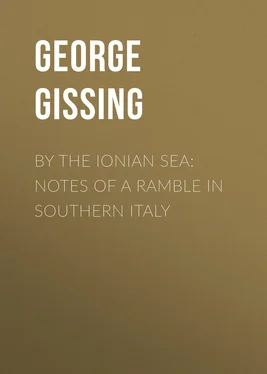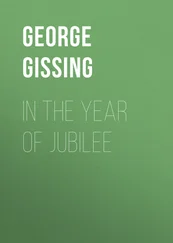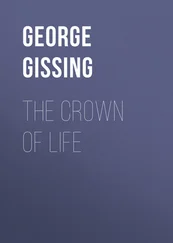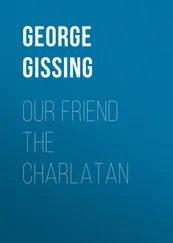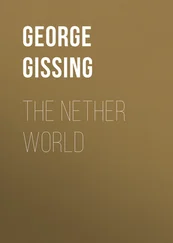George Gissing - By the Ionian Sea - Notes of a Ramble in Southern Italy
Здесь есть возможность читать онлайн «George Gissing - By the Ionian Sea - Notes of a Ramble in Southern Italy» — ознакомительный отрывок электронной книги совершенно бесплатно, а после прочтения отрывка купить полную версию. В некоторых случаях можно слушать аудио, скачать через торрент в формате fb2 и присутствует краткое содержание. Жанр: Путешествия и география, foreign_antique, на английском языке. Описание произведения, (предисловие) а так же отзывы посетителей доступны на портале библиотеки ЛибКат.
- Название:By the Ionian Sea: Notes of a Ramble in Southern Italy
- Автор:
- Жанр:
- Год:неизвестен
- ISBN:нет данных
- Рейтинг книги:3 / 5. Голосов: 1
-
Избранное:Добавить в избранное
- Отзывы:
-
Ваша оценка:
- 60
- 1
- 2
- 3
- 4
- 5
By the Ionian Sea: Notes of a Ramble in Southern Italy: краткое содержание, описание и аннотация
Предлагаем к чтению аннотацию, описание, краткое содержание или предисловие (зависит от того, что написал сам автор книги «By the Ionian Sea: Notes of a Ramble in Southern Italy»). Если вы не нашли необходимую информацию о книге — напишите в комментариях, мы постараемся отыскать её.
By the Ionian Sea: Notes of a Ramble in Southern Italy — читать онлайн ознакомительный отрывок
Ниже представлен текст книги, разбитый по страницам. Система сохранения места последней прочитанной страницы, позволяет с удобством читать онлайн бесплатно книгу «By the Ionian Sea: Notes of a Ramble in Southern Italy», без необходимости каждый раз заново искать на чём Вы остановились. Поставьте закладку, и сможете в любой момент перейти на страницу, на которой закончили чтение.
Интервал:
Закладка:
In front of the vehicle were three little horses; behind it was hitched an old shabby two-wheeled thing, which we were to leave somewhere for repairs. With whip-cracking and vociferation, amid good-natured farewells from the crowd, we started away. It was just ten o'clock.
At once the road began to climb, and nearly three hours were spent in reaching the highest point of the mountain barrier. Incessantly winding, often doubling upon itself, the road crept up the sides of profound gorges, and skirted many a precipice; bridges innumerable spanned the dry ravines which at another season are filled with furious torrents. From the zone of orange and olive and cactus we passed that of beech and oak, noble trees now shedding their rich-hued foliage on bracken crisped and brown; here I noticed the feathery bowers of wild clematis ("old man's beard"), and many a spike of the great mullein, strange to me because so familiar in English lanes. Through mists that floated far below I looked over miles of shore, and outward to the ever-rising limit of sea and sky. Very lovely were the effects of light, the gradations of colour; from the blue-black abysses, where no shape could be distinguished, to those violet hues upon the furrowed heights which had a transparency, a softness, an indefiniteness, unlike anything to be seen in northern landscape.
The driver was accompanied by a half-naked lad, who, at certain points, suddenly disappeared, and came into view again after a few minutes, having made a short cut up some rugged footway between the loops of the road. Perspiring, even as I sat, in the blaze of the sun, I envied the boy his breath and muscle. Now and then he slaked his thirst at a stone fountain by the wayside, not without reverencing the blue-hooded Madonna painted over it. A few lean, brown peasants, bending under faggots, and one or two carts, passed us before we gained the top, and half-way up there was a hovel where drink could be bought; but with these exceptions nothing broke the loneliness of the long, wild ascent. My man was not talkative, but answered inquiries civilly; only on one subject was he very curt—that of the two wooden crosses which we passed just before arriving at the summit; they meant murders. At the moment when I spoke of them I was stretching my legs in a walk beside the carriage, the driver walking just in front of me; and something then happened which is still a puzzle when I recall it. Whether the thought of crimes had made the man nervous, or whether just then I wore a peculiarly truculent face, or had made some alarming gesture, all of a sudden he turned upon me, grasped my arm and asked sharply: "What have you got in your hand?" I had a bit of fern, plucked a few minutes before, and with surprise I showed it; whereupon he murmured an apology, said something about making haste, and jumped to his seat. An odd little incident.
At an unexpected turn of the road there spread before me a vast prospect; I looked down upon inland Calabria. It was a valley broad enough to be called a plain, dotted with white villages, and backed by the mass of mountains which now, as in old time, bear the name of Great Sila. Through this landscape flowed the river Crati—the ancient Crathis; northward it curved, and eastward, to fall at length into the Ionian Sea, far beyond my vision. The river Crathis, which flowed by the walls of Sybaris. I stopped the horses to gaze and wonder; gladly I would have stood there for hours. Less interested, and impatient to get on, the driver pointed out to me the direction of Cosenza, still at a great distance. He added the information that, in summer, the well-to-do folk of Cosenza go to Paola for sea-bathing, and that they always perform the journey by night. I, listening carelessly amid my dream, tried to imagine the crossing of those Calabrian hills under a summer sun! By summer moonlight it must be wonderful.
We descended at a sharp pace, all the way through a forest of chestnuts, the fruit already gathered, the golden leaves rustling in their fall. At the foot lies the village of San Fili, and here we left the crazy old cart which we had dragged so far. A little further, and before us lay a long, level road, a true Roman highway, straight for mile after mile. By this road the Visigoths must have marched after the sack of Rome. In approaching Cosenza I was drawing near to the grave of Alaric. Along this road the barbarian bore in triumph those spoils of the Eternal City which were to enrich his tomb.
By this road, six hundred years before the Goth, marched Hannibal on his sullen retreat from Italy, passing through Cosentia to embark at Croton.
CHAPTER III
THE GRAVE OF ALARIC
It would have been prudent to consult with my driver as to the inns of Cosenza. But, with a pardonable desire not to seem helpless in his hands, I had from the first directed him to the Due Lionetti , relying upon my guide-book. Even at Cosenza there is progress, and guide-books to little-known parts of Europe are easily allowed to fall out of date. On my arrival–
But, first of all, the dazio . This time it was a serious business; impossible to convince the rather surly officer that certain of the contents of my portmanteau were not for sale. What in the world was I doing with tanti libri ? Of course I was a commercial traveller; ridiculous to pretend anything else. After much strain of courtesy, I clapped to my luggage, locked it up, and with a resolute face cried "Avanti!" And there was an end of it. In this case, as so often, I have no doubt that simple curiosity went for much in the man's pertinacious questioning. Of course the whole dazio business is ludicrous and contemptible; I scarce know a baser spectacle than that of uniformed officials groping in the poor little bundles of starved peasant women, mauling a handful of onions, or prodding with long irons a cartload of straw. Did any one ever compare the expenses with the results?
A glance shows the situation of Cosenza. The town is built on a steep hillside, above the point where two rivers, flowing from the valleys on either side, mingle their waters under one name, that of the Crati. We drove over a bridge which spans the united current, and entered a narrow street, climbing abruptly between houses so high and so close together as to make a gloom amid sunshine. It was four o'clock; I felt tired and half choked with dust; the thought of rest and a meal was very pleasant. As I searched for the sign of my inn, we suddenly drew up, midway in the dark street, before a darker portal, which seemed the entrance to some dirty warehouse. The driver jumped down—"Ecco l'albergo!"
I had seen a good many Italian hostelries, and nourished no unreasonable expectations. The Lion at Paola would have seemed to any untravelled Englishman a squalid and comfortless hole, incredible as a place of public entertainment; the Two Little Lions of Cosenza made a decidedly worse impression. Over sloppy stones, in an atmosphere heavy with indescribable stenches, I felt rather than saw my way to the foot of a stone staircase; this I ascended, and on the floor above found a dusky room, where tablecloths and an odour of frying oil afforded some suggestion of refreshment. My arrival interested nobody; with a good deal of trouble I persuaded an untidy fellow, who seemed to be a waiter, to come down with me and secure my luggage. More trouble before I could find a bedroom; hunting for keys, wandering up and down stone stairs and along pitch-black corridors, sounds of voices in quarrel. The room itself was utterly depressing—so bare, so grimy, so dark. Quickly I examined the bed, and was rewarded. It is the good point of Italian inns; be the house and the room howsoever sordid, the bed is almost invariably clean and dry and comfortable.
I ate, not amiss; I drank copiously to the memory of Alaric, and felt equal to any fortune. When night had fallen I walked a little about the scarce-lighted streets and came to an open place, dark and solitary and silent, where I could hear the voices of the two streams as they mingled below the hill. Presently I passed an open office of some kind, where a pleasant-looking man sat at a table writing; on an impulse I entered, and made bold to ask whether Cosenza had no better inn than the Due Lionetti . Great was this gentleman's courtesy; he laid down his pen, as if for ever, and gave himself wholly to my concerns. His discourse delighted me, so flowing were the phrases, so rounded the periods. Yes, there were other inns; one at the top of the town—the Vetere —in a very good position; and they doubtless excelled my own in modern comfort. As a matter of fact, it might be avowed that the Lionetti , from the point of view of the great centres of civilization, left something to be desired—something to be desired; but it was a good old inn, a reputable old inn, and probably on further acquaintance–
Читать дальшеИнтервал:
Закладка:
Похожие книги на «By the Ionian Sea: Notes of a Ramble in Southern Italy»
Представляем Вашему вниманию похожие книги на «By the Ionian Sea: Notes of a Ramble in Southern Italy» списком для выбора. Мы отобрали схожую по названию и смыслу литературу в надежде предоставить читателям больше вариантов отыскать новые, интересные, ещё непрочитанные произведения.
Обсуждение, отзывы о книге «By the Ionian Sea: Notes of a Ramble in Southern Italy» и просто собственные мнения читателей. Оставьте ваши комментарии, напишите, что Вы думаете о произведении, его смысле или главных героях. Укажите что конкретно понравилось, а что нет, и почему Вы так считаете.
